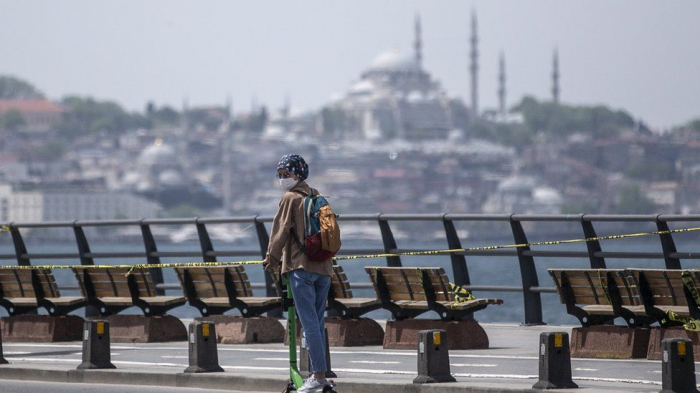Turkey ranks fourth globally in new case numbers, which peaked near 56,000 last week - a five-fold jump from early March, when Erdogan loosened social curbs in what he called a period of “controlled normalisation”.
Ankara has blamed lax public adherence to rules and virus variants for the surge, and on March 29 it announced weekend lockdowns and closed restaurant dining for Ramadan, the Islamic fasting month that starts on Tuesday.
But the official told Reuters the short-lived normalisation period did not go well and measures were set to be tightened even more after a cabinet meeting scheduled for Tuesday.
“There does not appear to be a solution other than taking much harsher measures,” the person said. Erdogan’s cabinet will act on proposals made by a government science board that meets on Monday evening, the official added, requesting anonymity.
The official said steps may include limiting intercity travel, which doctors say is key to transmission, restricting movement of those under 20 and over 65 years, and closing sports and leisure facilities.
Separate sources on the 38-member science board said some wanted a complete lockdown throughout Ramadan or failing that, restrictions on movement between cities and reductions in public transport use within cities by adjusting work shifts.
“The plan is to lower case numbers before the tourism season fully begins, because daily case numbers above 50,000 will impact tourism in a seriously negative way,” the official said.
Last year the pandemic slashed Turkey’s tourism revenues - a major source of foreign currency to curb its chronically high current account deficits - by two-thirds to $12 billion.
Based on Erdogan’s March 29 announcement, restaurants may be limited to delivery and take-outs during Ramadan, while a nationwide curfew from 9 pm until 5 am will continue.
Since January, Turkey has administered 18.7 million vaccinations. Some 11 million people have received a first dose, out of a population of 84 million.
Nurettin Yigit, head doctor at a specially-built pandemic hospital in Istanbul, said the shots had helped lower the average age of inpatients to below 60, lessening intensive care patients and deaths.
“We plan to have vaccinated a large proportion of the country by June. If we can advance towards this goal, this looks like being the last big wave,” he said.
More about: #Turkey
















































